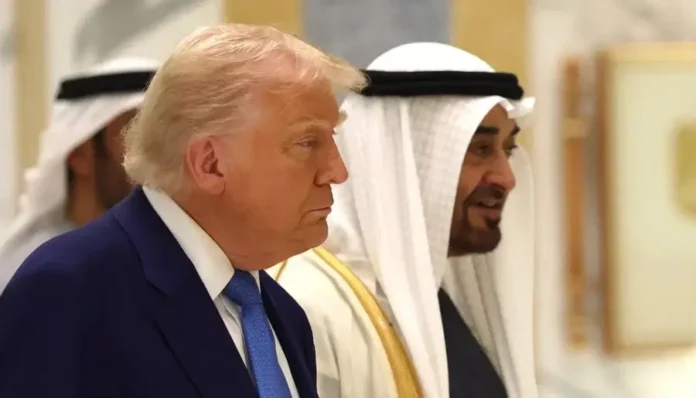- President Donald Trump’s recent Middle East trip resulted in $200 billion worth of agreements with the United Arab Emirates, focusing on AI, energy, and aviation.
- The centerpiece is a massive AI campus in Abu Dhabi, designed to enhance regional technology and serve global markets.
- These deals are part of a broader $1.4 trillion investment commitment from Gulf countries to the U.S., aimed at economic diversification and strengthening bilateral relations.
During his recent visit to the Middle East, U.S. President Donald Trump finalized deals valued at around $200 billion with the United Arab Emirates (UAE), significantly enhancing cooperation between the two nations in technology, energy, and aviation sectors. This milestone marks a major step in deepening economic ties and advancing artificial intelligence (AI) development in the region.
A key element of these agreements is the establishment of the world’s largest AI campus outside the United States, located in Abu Dhabi. Spanning 10 square miles, this campus will feature a 5-gigawatt capacity dedicated to AI data centers. The project is led by G42, a UAE-based AI company, in collaboration with several American firms. This facility aims to host major U.S. hyperscale cloud providers and enterprises, boosting AI computing power across the Middle East and serving developing countries globally.
Another significant component is the UAE’s ability to import up to 500,000 high-performance AI chips annually from Nvidia until 2027. These chips are crucial for the UAE’s AI ambitions, and strict measures are in place to prevent unauthorized technology transfer, addressing U.S. national security concerns. This agreement reflects a shared commitment to safeguarding advanced technologies while promoting innovation.
In addition to AI, the aviation sector received a substantial boost with Etihad Airways committing $14.5 billion to purchase 28 widebody aircraft, including Boeing 787 and 777X models powered by General Electric engines. This deal supports American aerospace manufacturing and strengthens the aviation industry’s ties with the UAE.
Further investments include Emirates Global Aluminum’s plan to build a $4 billion aluminum smelter in Oklahoma, marking one of the first new smelters in the U.S. in decades. Holtec International also announced investments in small modular nuclear reactors in Michigan, highlighting the broad scope of cooperation beyond AI and aviation.
Qualcomm, a leading technology company, is set to open a global engineering center in Abu Dhabi focused on AI, data centers, and industrial internet of things (IoT) technologies. This initiative underscores the UAE’s ambition to become a hub for cutting-edge technological development.
These agreements are part of a larger $1.4 trillion investment pledge from the UAE to the U.S. economy over the next ten years. The goal is to diversify the Gulf nation’s economy away from oil dependence and accelerate AI innovation while simultaneously bolstering U.S. manufacturing and technological leadership. The White House highlighted that these deals will increase U.S. investments and improve market access in the UAE, enhancing both economic growth and national security.
Trump’s visit to the UAE was historic, as he became the first U.S. president to visit the country in 17 years. His Gulf tour also included significant agreements with Saudi Arabia and Qatar, collectively amounting to $1.4 trillion in investment commitments across the region. These deals reflect a strategic partnership aimed at mutual economic benefit and technological advancement.
While the trip did not yield the anticipated peace agreements in conflict zones like Gaza and Ukraine, it successfully secured major economic and technological partnerships. Trump emphasized the importance of these investments in reviving American industries and strengthening ties with influential Gulf monarchies.
In summary, the $200 billion UAE deals represent a landmark achievement in U.S.-Middle East relations, focusing on AI, energy, aviation, and advanced manufacturing. These partnerships are set to foster innovation, create jobs, and promote economic diversification, benefiting both the United States and the UAE in the coming decade.
